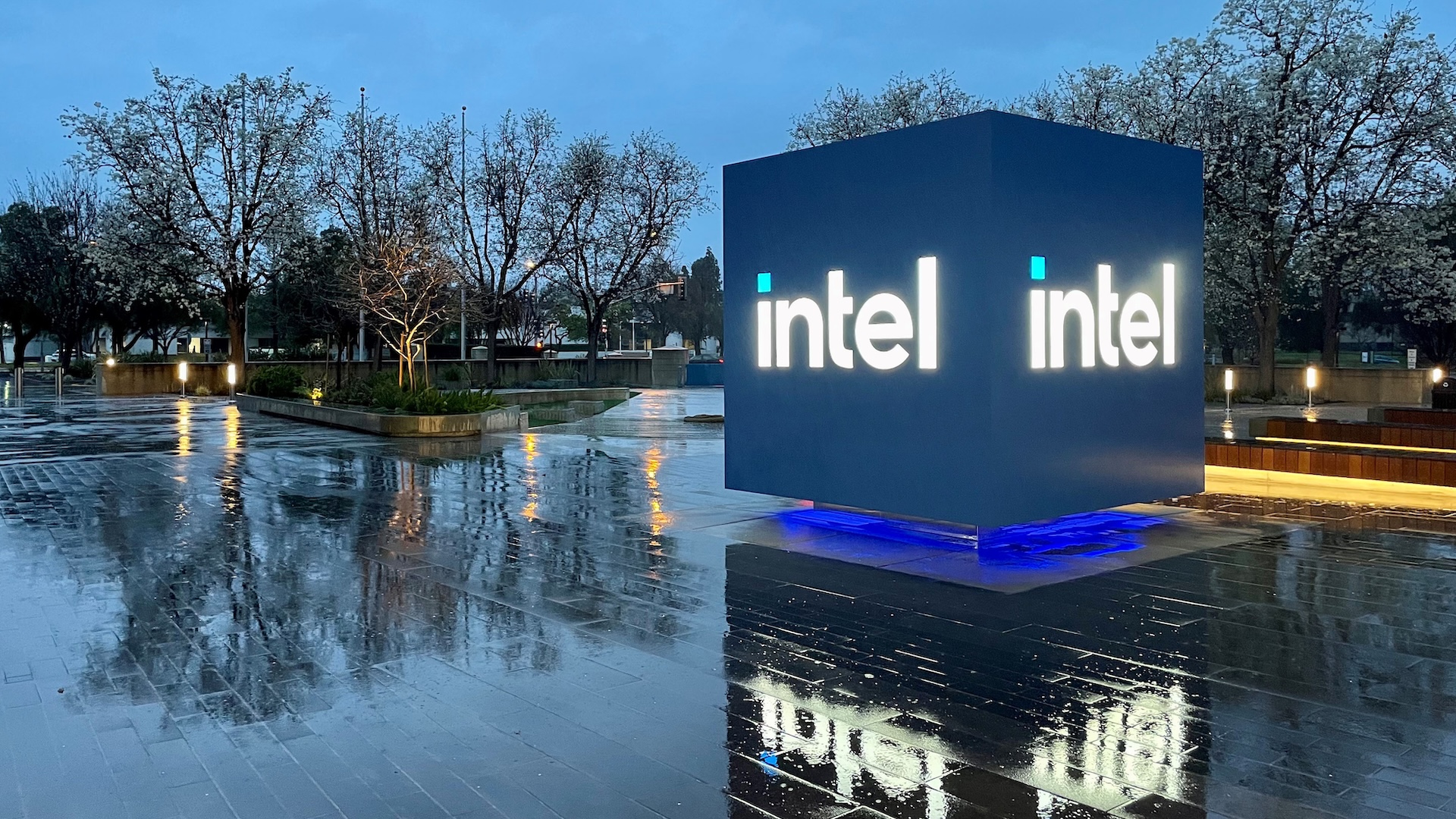Intel gets off the hook and won't have to pay $1.1 billion EU antitrust fine — chipmaker was previously accused of offering incentives to partners to block AMD
Intel did not bribe partners to oust AMD from PCs.

Get Tom's Hardware's best news and in-depth reviews, straight to your inbox.
You are now subscribed
Your newsletter sign-up was successful
The European Court of Justice upheld the General Court’s decision to annul a €1.06 billion ($1.144 billion) fine imposed on Intel by the European Commission. The case revolved around Intel’s use of rebates offered to computer makers to purchase its x86 processors, which regulators claimed were designed to stifle competition. The case has been ongoing since the fine was issued initially in 2009.
AMD had long accused Intel of engaging in unfair business practices to maintain its dominance in the CPU market. Specifically, AMD alleged that Intel used rebates and market power to encourage or pressure computer makers like Dell, HP, NEC, Lenovo, and retailers and distributors not to use AMD processors. The company filed lawsuits against Intel in major jurisdictions in 2005.
In May 2009, the European Commission fined Intel €1.06 billion ($1.144 billion) for offering financial incentives to PC makers and distributors in exchange for exclusive or preferential use of Intel CPUs, making it impossible for rival AMD to compete against Intel. Intel appealed the fine, claiming that it was not guilty. However, in November 2009, Intel and AMD reached a settlement in which Intel agreed to pay AMD $1.25 billion, a sum aimed at compensating AMD for its lost opportunities due to Intel’s practices. $1.25 billion was one of the largest private settlements in the history of antitrust litigations.
In 2014, the General Court dismissed Intel’s appeal, but Intel contested the decision, and the case was sent back for further review. In 2022, the General Court annulled the fine and partially invalidated the Commission’s decision.
The Commission appealed this annulment, arguing that the General Court had mishandled its analysis, particularly with the as-efficient competitor test, designed to assess whether Intel’s rebates were harmful to competition. The EC claimed procedural and legal errors and misinterpretations of evidence undermined the review process.
However, the Court of Justice — Europe’s top court — rejected all the EC’s claims, affirming that the General Court had appropriately reviewed Intel’s objections. It found that the Commission’s conclusions, especially regarding the ‘as-efficient-competitor’ test, were flawed and did not prove that Intel’s rebate practices harmed competition. This failure to show clear evidence of anticompetitive effects played a key role in the lower Court’s decision to scrap the fine. The Court of Justice, therefore, supported the annulment of the fine.
In its final ruling, the Court emphasized that the General Court was not obligated to justify the Commission’s decision based on faulty reasoning or errors. The judgment closes the lengthy legal battle.
Get Tom's Hardware's best news and in-depth reviews, straight to your inbox.

Anton Shilov is a contributing writer at Tom’s Hardware. Over the past couple of decades, he has covered everything from CPUs and GPUs to supercomputers and from modern process technologies and latest fab tools to high-tech industry trends.
-
ekio How convenient….Reply
The fines always end up being cancelled.
Why bother being a decent company in the end? -
TechieTwo SOS, DD. Intel seems to be able to buy favor even after being convicted. They didn't pay AMD $1.25 billion because they are an ethical company.Reply -
dalek1234 And Intel still pays people off to buy their CPUs instead of AMD's, they are just smarter about hiding those bribes.Reply -
derekullo I did not bribe the EU. It's not true.Reply
I did not bribe them
Oh hi, PatrickLisa Lisa, you're tearing me apart!
You know what they say
"Love is blind"Let's go eat, huh?Everything is fine -
DS426 The fact that Dell still has a s**t-showing of AMD business PC's today is sufficient evidence.Reply
Probably also why they are tanking in PC shipments when Lenovo grew and HP held the line this last quarter. Extremely competitive and sometimes better products not being available is hardly a winning business strategy, a?